We’re excited to introduce you to the always interesting and insightful Nathan Wakefield. We hope you’ll enjoy our conversation with Nathan below.
Nathan, first a big thank you for taking the time to share your thoughts and insights with us today. I’m sure many of our readers will benefit from your wisdom, and one of the areas where we think your insight might be most helpful is related to imposter syndrome. Imposter syndrome is holding so many people back from reaching their true and highest potential and so we’d love to hear about your journey and how you overcame imposter syndrome.
I’ve always struggled with imposter syndrome a lot as an entertainer. The best way I’ve found to overcome it is through repetition. That is, the more shows I do, the more natural it feels overtime. It also helps with the amount of time I put into developing and rehearsing material behind the scenes. The more overall time I dedicate to my craft both on and off stage, the easier it is for me to feel as though I belong there. I also try to remind myself that I get to perform because it’s what I love to do and the audience (for the most part) wants me to succeed so that they can be entertained. If we’re all on the same page, everyone belongs there and everyone wins.
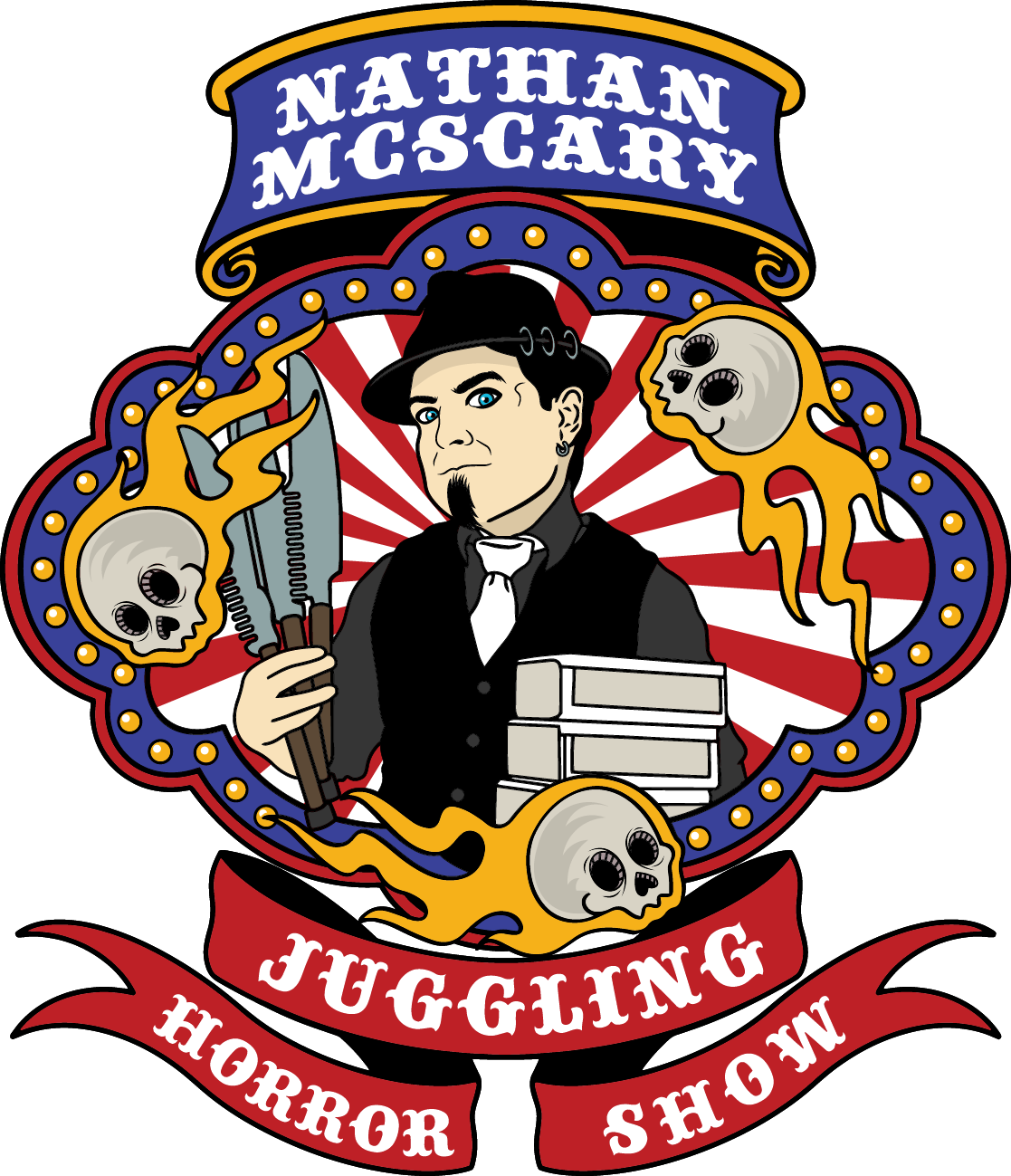
Appreciate the insights and wisdom. Before we dig deeper and ask you about the skills that matter and more, maybe you can tell our readers about yourself?
I am a variety entertainer. The stage name I go by is Nathan McScary. My primary focus is on juggling, though I am also passionate about the genres of sideshow and the fire arts. I like combining different aspects of these arts into a unique brand. In particular, I enjoy learning and presenting vaudeville-era gentleman juggling tricks mixed in with shocking sideshow stunts, so my audiences get a hard contrast of the classy and the grotesque in the same show. In addition to my work as an entertainer, I am also very much an advocate for the variety arts as well as a historian of my craft. I’ve traveled the country lecturing at various sideshow and circus conventions, contributed to various publications, and in 2023 I released my first non-fiction historical book called ‘The Rise and Fall of the Sideshow Geek.’
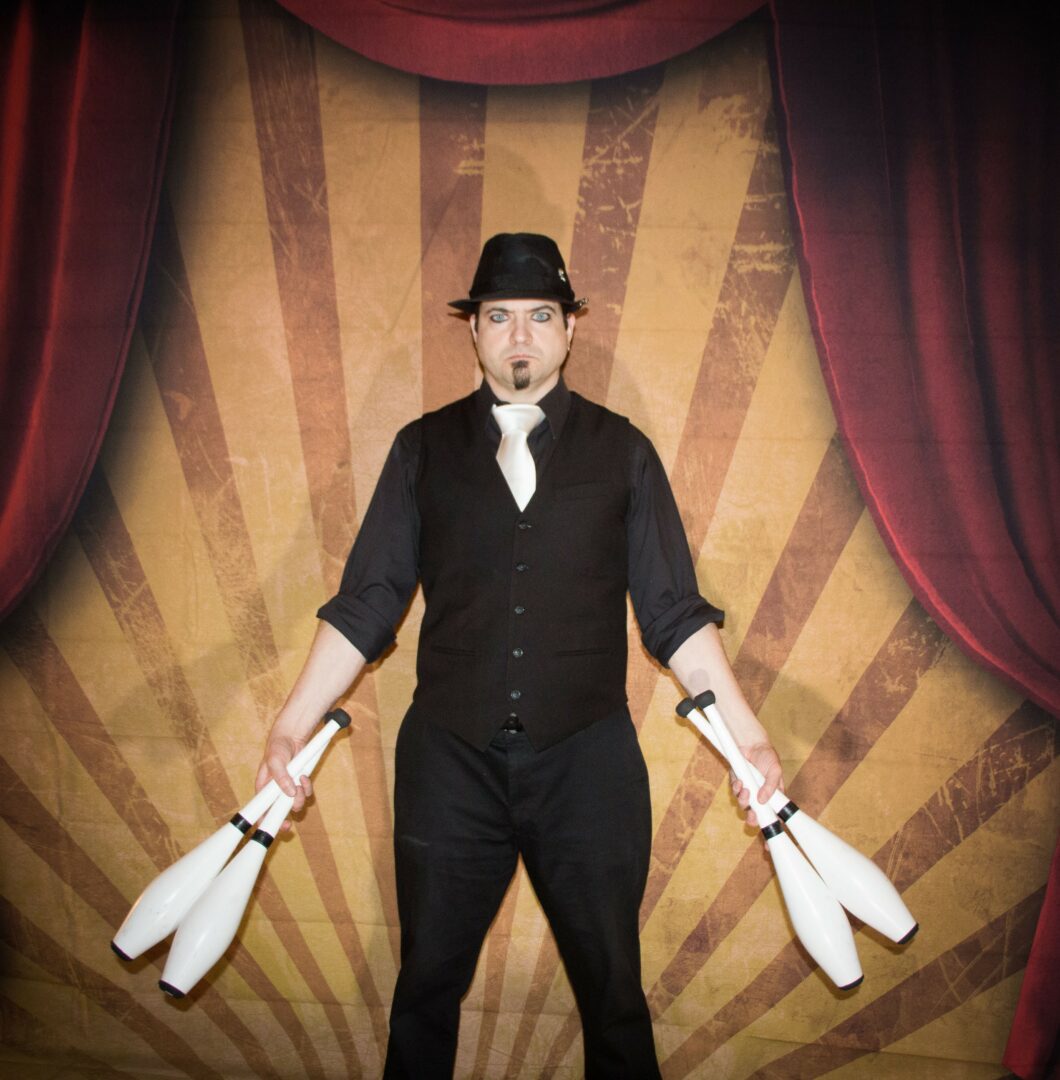
If you had to pick three qualities that are most important to develop, which three would you say matter most?
Creativity, dedication, and patience.
My creativity keeps me excited about what I do and inspires me to constantly be working on new tricks and routines. It also helped me to develop a unique brand to set myself apart. This is as opposed to being a token juggler that could be interchangeable with anyone of comparable technical skillset. Creativity can be a useful tool for establishing your own identity so that you stand out from the crowd.
I am dedicated to my craft and this helps me to constantly refine what I do. When I’m not practicing my skill set, I’m often researching new tricks, seeking out masters to learn from, and reading books on the performing arts. If you are truly dedicated to what you do, it shows in your output.
If there is one thing that juggling in particular has taught me, it’s patience. Make no bones about it; Juggling is hard work. This is especially true when you are trying to learn tricks, put together routines, and cultivate a degree of proficiency that you are able to present in front of an audience on demand. Patience is not only important when it comes to learning the physical skills, but when it comes to slowly building up your resume. The more experience you get over time, the more opportunities may present themselves to you that would not have been present when you were first starting out.
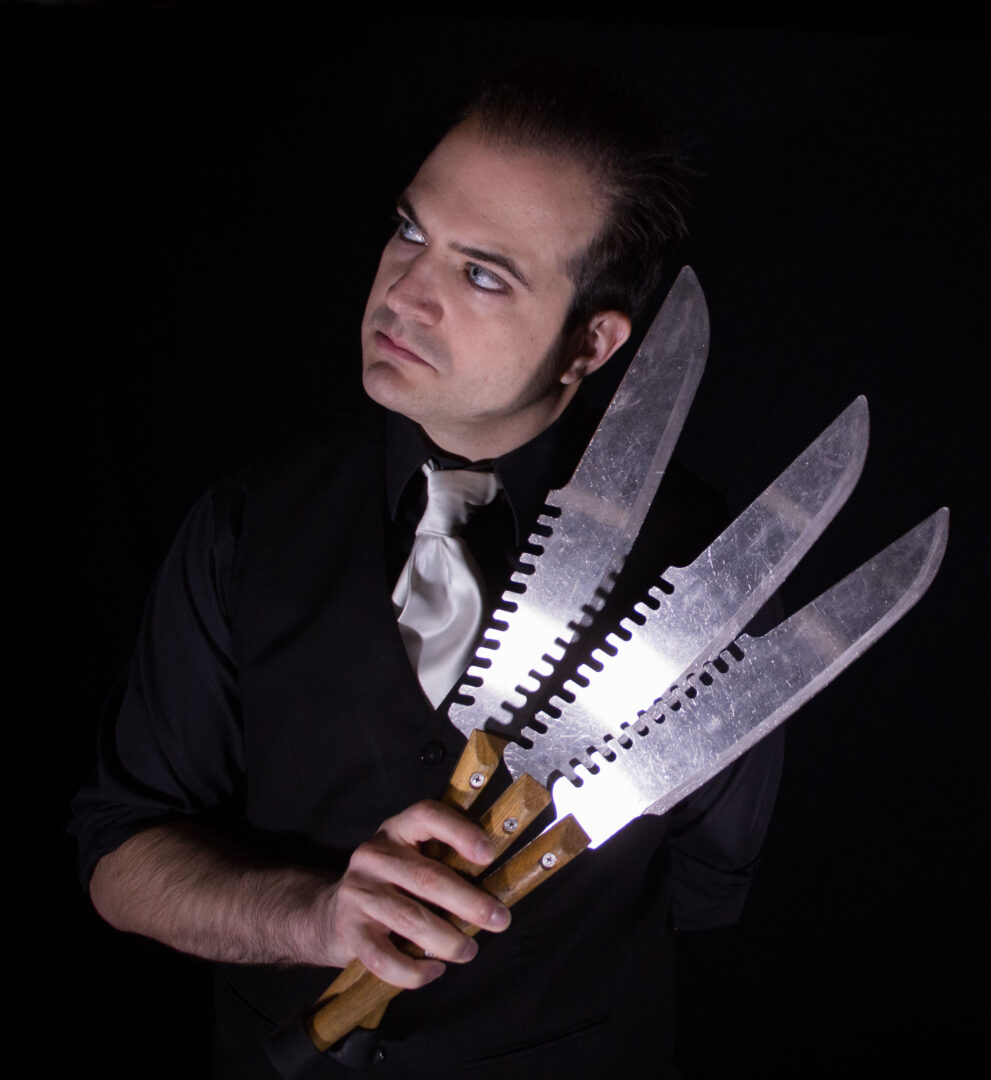
Is there a particular challenge you are currently facing?
Technology is a major challenge when it comes to live entertainment.
Historically speaking, you can trace declining interest in various live entertainment, at least in part, to various technological innovations happening during those periods. These include talking motion pictures contributing to the downfall of vaudeville and the eventual addition of television sets in households resulting in a decline in sideshow/circus interest during the early to mid 20th century.
Today, people can watch high-rez videos on their phones on any topic they can think of to keep themselves entertained. It can be a real challenge to convince people to put down their phones and leave home to enjoy live entertainment happening in person.
Another thing is that technology can be a useful promotional tool, sure, but there is also that fine line between using it effectively to promote your live show vs. giving away too much and spoiling what people can expect to see during the live experience. I try to be high energy during my shows and I avoid posting a lot of my acts online so that people can retain a certain degree of both surprise and intrigue when they see my shows.
Contact Info:
- Website: https://nathanmcscary.com/
- Instagram: https://www.instagram.com/nathanmcscary
- Youtube: https://www.youtube.com/@NathanMcScary

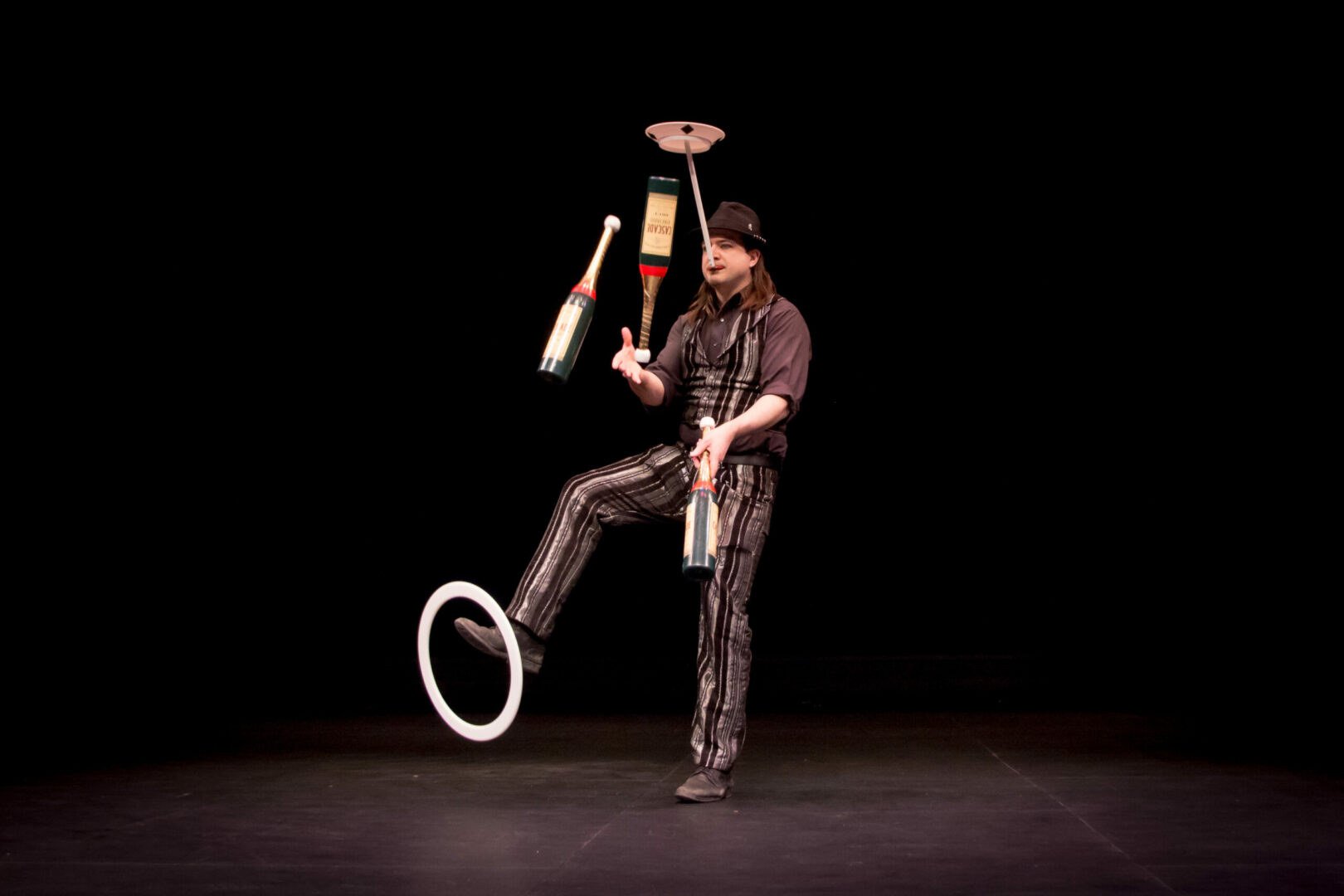
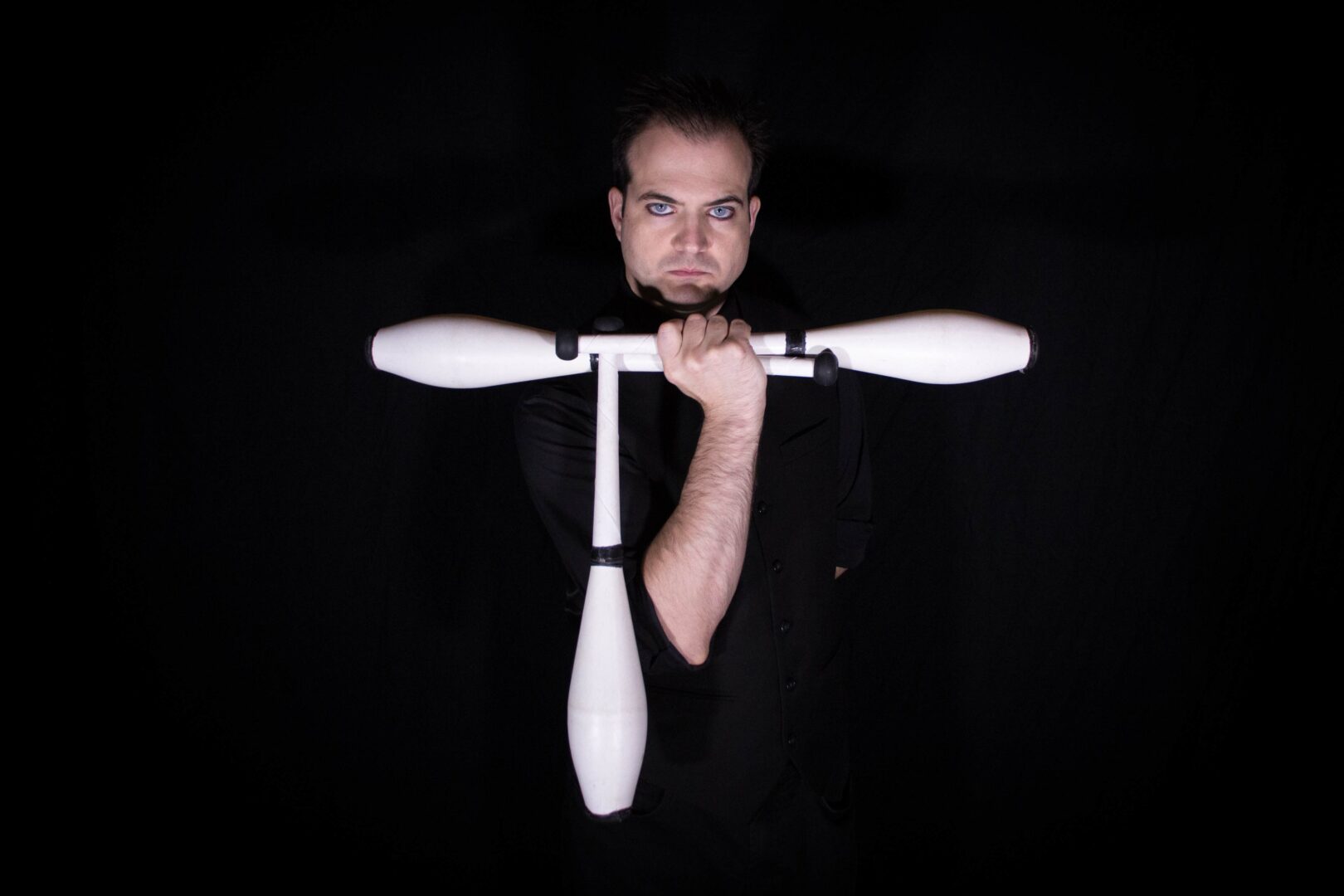
so if you or someone you know deserves recognition please let us know here.




